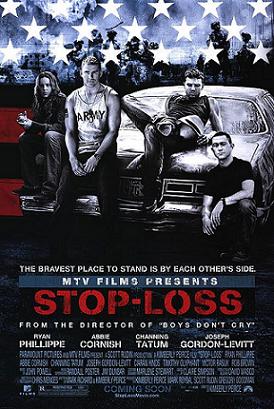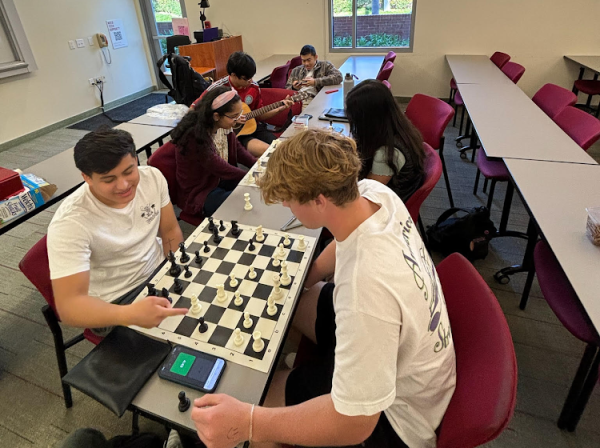*Stop-Loss* avoids political bias, focuses on humanity

Set before the Iraq War, Stop-Loss choosing to place the personal struggles of soldiers pressured with the choice between serving more years overseas or returning home above a political agenda.
April 2, 2008
Writer-director Kimberly Peirce’s new film Stop-Loss concerns the process the United States government uses to compel troops to return to a conflict even if their tour of duty is finished. While this is a controversial issue, Peirce delves deep into a human rather than overtly political story, which is partially inspired by her brother’s enlistment after 9/11. Peirce displays expert filmmaking abilities by not indulging in simplistic conclusions; instead she tells a quality, down-to-earth story about the people affected by this process.
The film begins with a bang as three friends from Texas, Brandon King (Ryan Phillippe), Steve Shriver (Channing Tatum) and Tommy Burgess (Joseph Gordon-Levitt) come under heavy fire as their unit mans a checkpoint in Tikrit, Iraq. After this battle, they return home to a Texas welcome. Although happy to be home, the war has affected all of them greatly and spills into their personal lives. After a time of celebration, the men report back to base for debriefing and Brandon is informed that his unit is being stop-lossed. He immediately, impulsively protests saying that he has done his duty; his years of service are up, and he fights to remain at home. Instantly best friends are at odds as Steve, who wants to return and defend his country, feels betrayed by Brandon. This sets the stage for an emotional set of choices that is the foundation of a compelling film.
The film is solid on many levels. The direction shows restraint, so the film does not feel manipulative or preachy. Pierce also directs the actors away from Southern and Texas stereotypes by accurately depicting them as authentic people. The writing, from Peirce and Mark Richard, captures complexities of emotion and various points of view with equal representation and fervor. This results in a film that avoids either a pro-war or anti-war slant. Phillippe’s performance is as excellent as his fine acting in Crash, Flags of Our Fathers, and Breach. Likewise Tatum and Abbie Cornish, who played Michelle, Shriver’s fiancée, bring intricacy and validity to their characters.
Stop-Loss is not without fault. The film drags in a few places and does not always hit the emotional strides required for the story, but these faults are few and far between. Some might say that the film is derivative of The Deer Hunter, but Stop-Loss seems to have a unique voice outside its direct influences. Heavy violence and language may alienate some viewers, but it accurately portrays the lives of these men and does not divert from the rest of the film.
Despite these shortcomings, Stop-Loss is a film everyone should see. Its current cultural context aside, it is a solid film about humanity that asks tough questions and does not supply simplistic answers. It is the best Iraq War drama made so far and is one of the best films of this year; hopefully, it will be recognized with awards. It is an intelligent work that will keep you talking and thinking long after the film is over.
Stop-Loss is Rated R for graphic violence and pervasive language.






